The Mass Effect trilogy companions, ranked
Who do we love, and who do we love to hate?
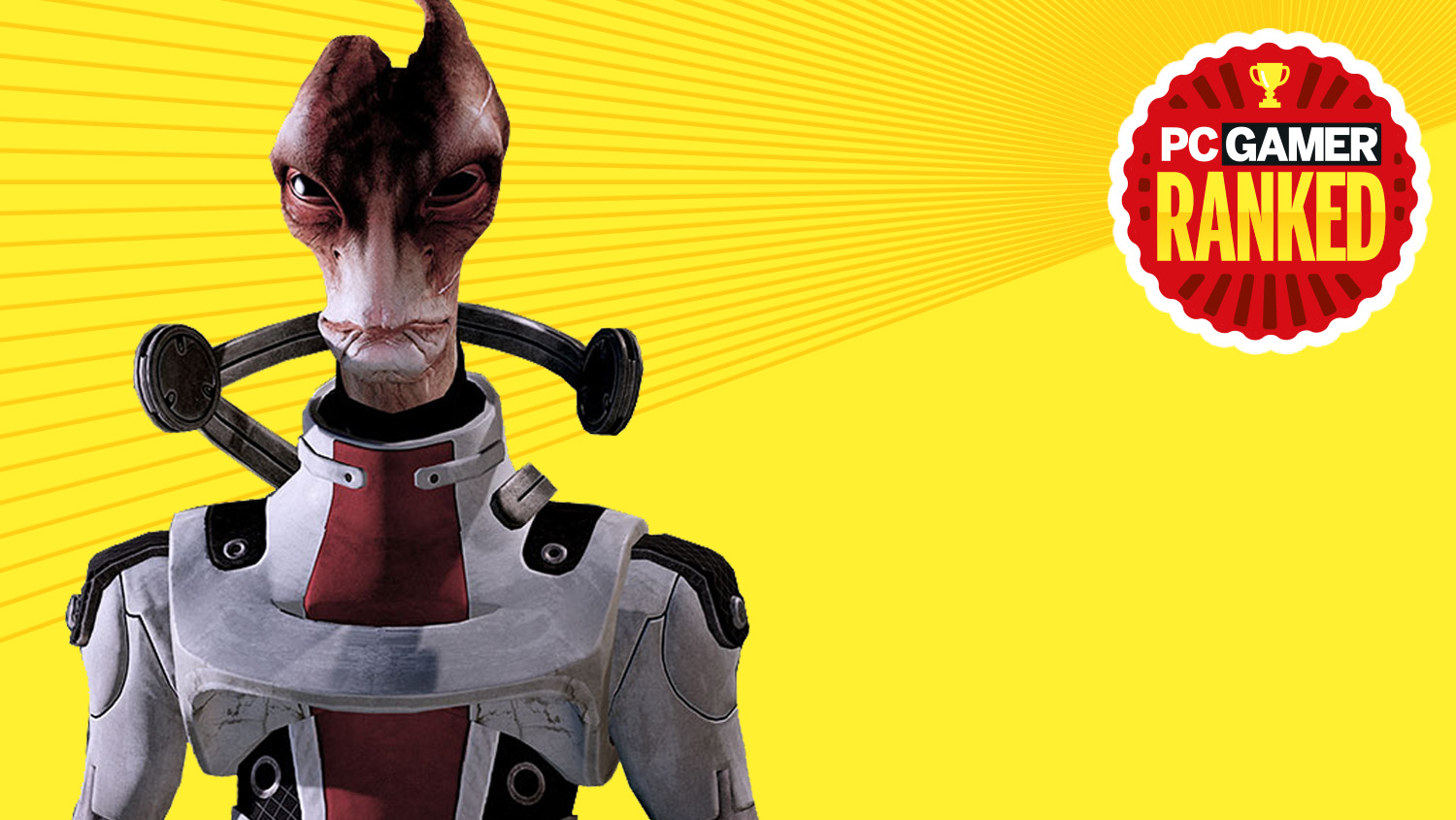
When I dropped my ranking of Mass Effect companions into PC Gamer's internal chat channel a few years ago, it destroyed productivity for an hour. The same thing would happen today. It says something about Mass Effect that we feel so strongly about its stories even when the games are now old enough to now have a remastered collection in Mass Effect Legendary Edition. We're just as passionate about the characters we love as we are about the ones we hate.
BioWare built on the template it established with Knights of the Old Republic throughout the Mass Effect series. First the characters are fun diversions, filling out the world with lore. Then they become romance partners, and your interactions with them influence how they grow and change and even affect the world around them. In Mass Effect 2, those character arcs essentially become the story instead of secondary concerns, and wrapping up those trilogy-long arcs in Mass Effect 3 after five years is something we'd never really experienced before in gaming.
So these companions mean a lot to us. I knew publishing my list would be a bloodbath, so we decided on a compromise: let democracy decide (but seriously Jack is the worst, no matter what this list may say). The PC Gamer team voted on the companions, ranking them from 1-20 to create this: the truly definitive list of the best Mass Effect sidekicks to have kinky alien sex go space adventuring with.
Note: This article was originally published in 2016. It has been updated for the release of Mass Effect Legendary Edition.
The Criteria
Number of entries: 20.
What's included: All of the Mass Effect 1-3 recruitable companions, including DLC characters like Kasumi and Javik.
What's not included: The Mass Effect Andromeda cast, who got their own list. Smaller side characters who don't go on missions with you are out, too. Sorry Joker.
Keep up to date with the most important stories and the best deals, as picked by the PC Gamer team.

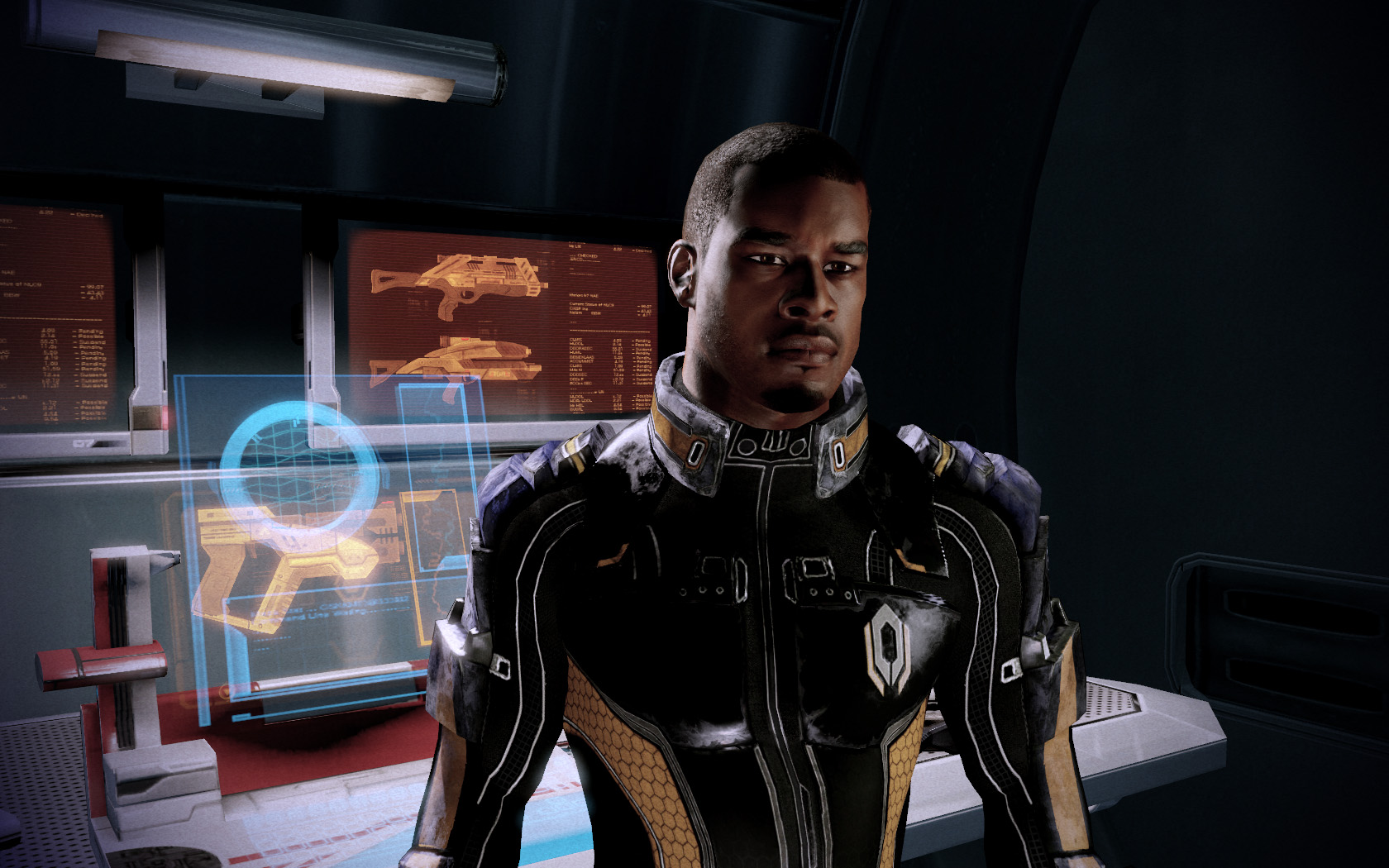
20. Jacob Taylor
It's a heavy risk, being the boring male starter companion in a BioWare RPG. Of the three men to fulfill this role in the Mass Effect series, Jacob struggles most. James Vega is enjoyably portrayed by Freddie Prinze Jr., and has a fun role in the Citadel DLC. Kaidan Alenko has personality-enhancing migraines and you're allowed to abandon him on an alien world with a nuclear bomb. But Jacob? Jacob's destiny is to promise you a beer that he'll never buy you and his most earnest wish is to give up a life of space adventure and start a family.
He manages to have the strangest daddy issues of any Mass Effect 2 character, and that is a competitive field, but it's not enough to raise him above the parapets of mediocrity. His defining moment is this line, delivered at the culmination of his romance arc. It is the worst moment in Mass Effect. Sorry, Jacob. You are the worst companion. The prize was not worth it. —Chris Thursten
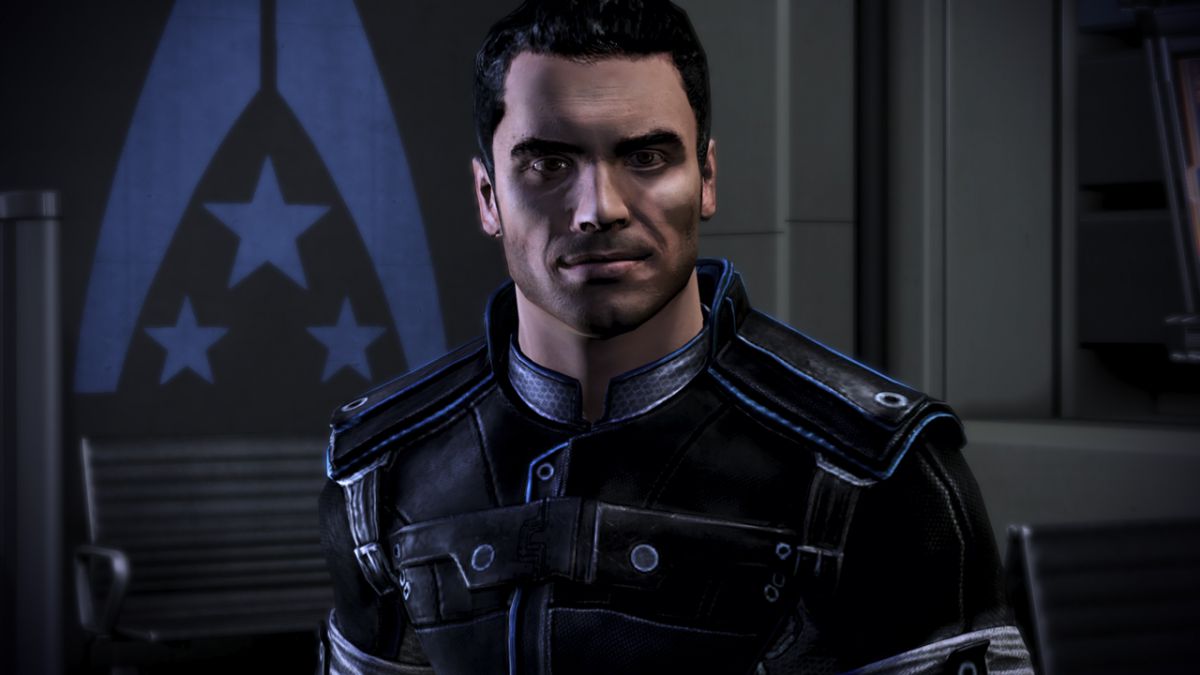
19. Kaidan Alenko
There's only one thing that elevates Kaidan Alenko over Jacob Tyler as a boring male starter companion: you can kill him. —Wes Fenlon
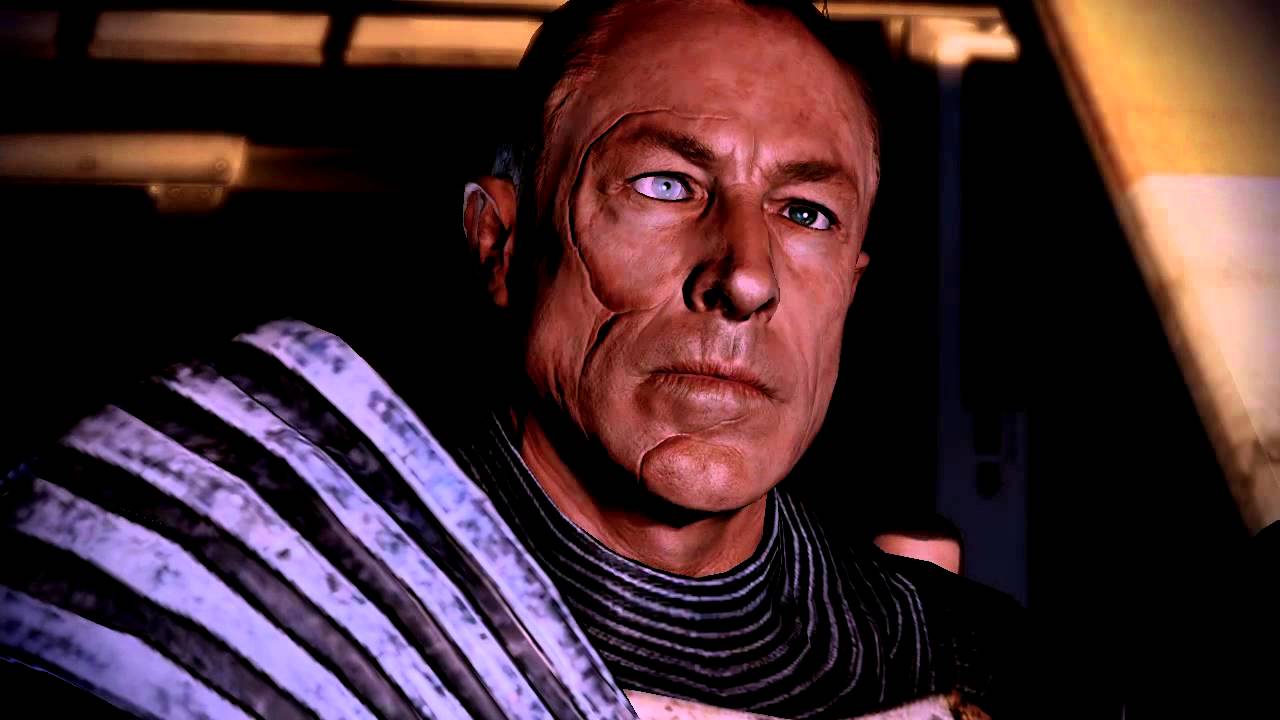
18. Zaeed Massani
I still hold a grudge against Mr. Tough Guy Combat Veteran for letting me down in Mass Effect 2's suicide mission finale. If he's so seasoned, why did he utterly fail me as a commander, getting one of my squadmembers killed? Thanks for nothing, Zaeed. And that scar doesn't make you look as cool as you think it does.
I saw through the thin veneer of Zaeed's character to what he really was: a less interesting retread of KotOR's Mandalorian Canderous Ordo. None of Zaeed's war stories could possibly compare to Ordo describing an atmospheric entry at the head of an army of invading Mandalorians. —Wes Fenlon
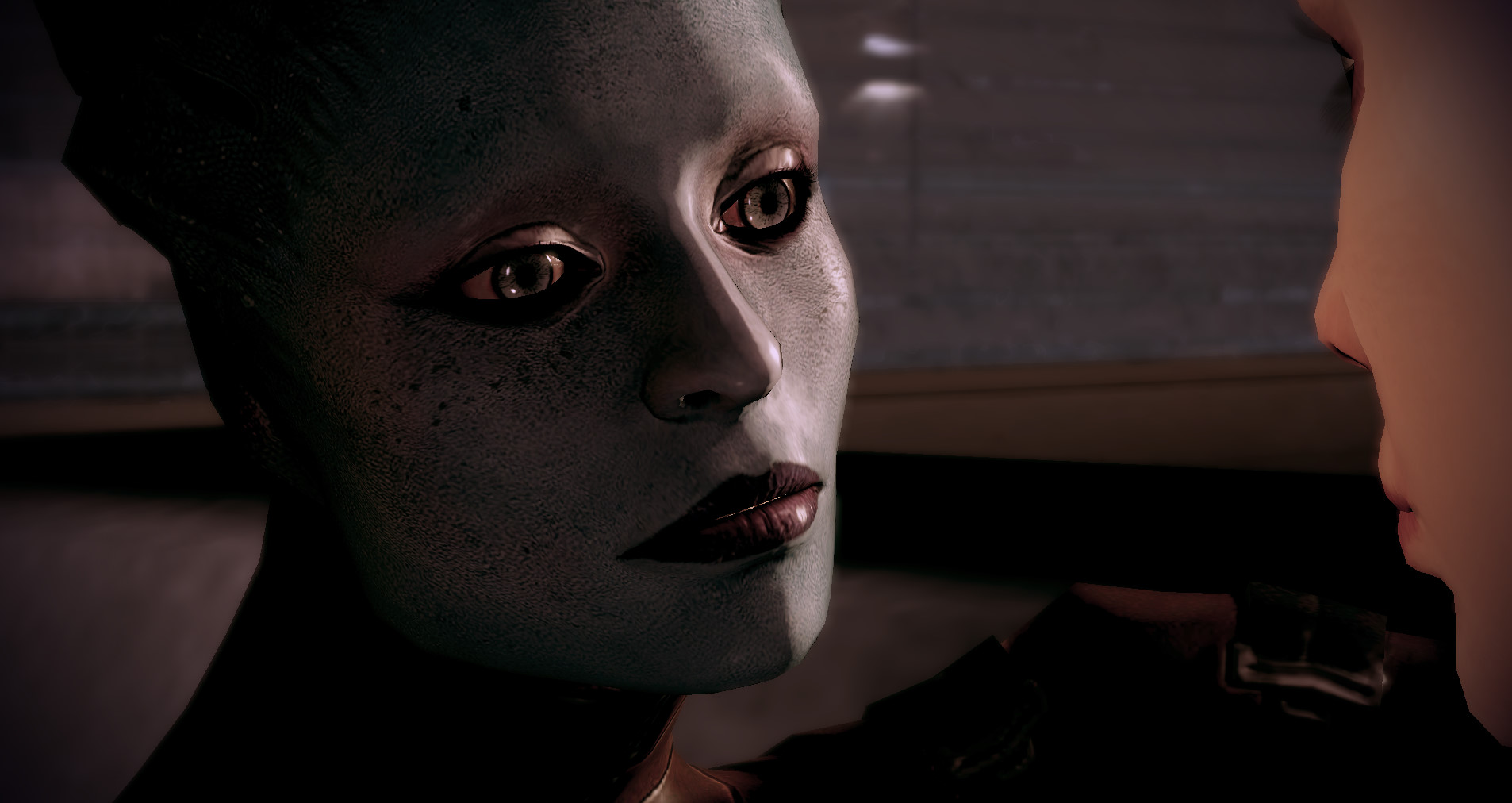
17. Morinth
Morinth's best-case scenario, as a squad member, is that she replaces Samara in your crew—but she just masquerades as Samara, and the trade never really amounts to much. And that's the extent of her role. She's a poor replacement for the more interesting and conflicted justicar. As an antagonist, though, she's great—I remember the cat-and-mouse game of catching Morinth as one of Mass Effect 2's most exciting moments, knowing the wrong dialogue decision could lead to death or failure. —Wes Fenlon
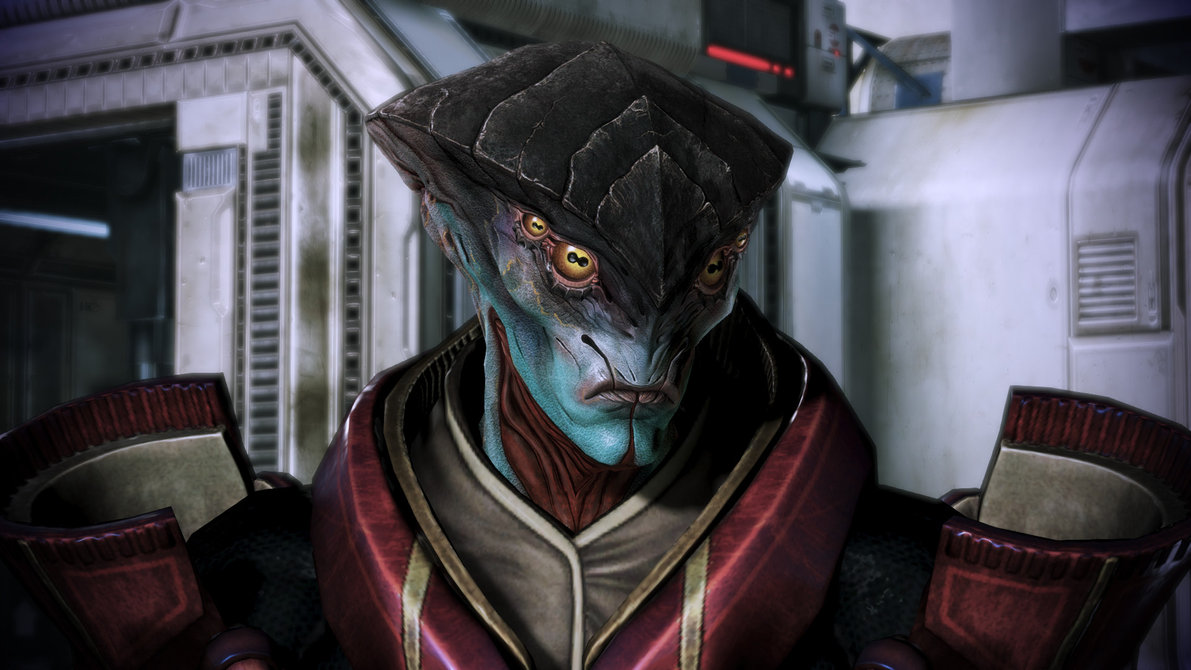
16. Javik
There's probably something good to say about Javik, the dethawed prothean who joins your crew in Mass Effect 3 if you paid $10 for the day-one From Ashes DLC. But as it turns out, most of our staff didn't have Javik in their crew, earning him the indifferent shrug of 16th place. While he may not have been essential to Mass Effect 3's plot, I think it reflects poorly on Bioware that the one character who could offer significant insight into the protheans wasn't part of the base game. In an alternate timeline, Javik could've been pivotal to the story and ranked much higher in our collective memories. —Wes Fenlon
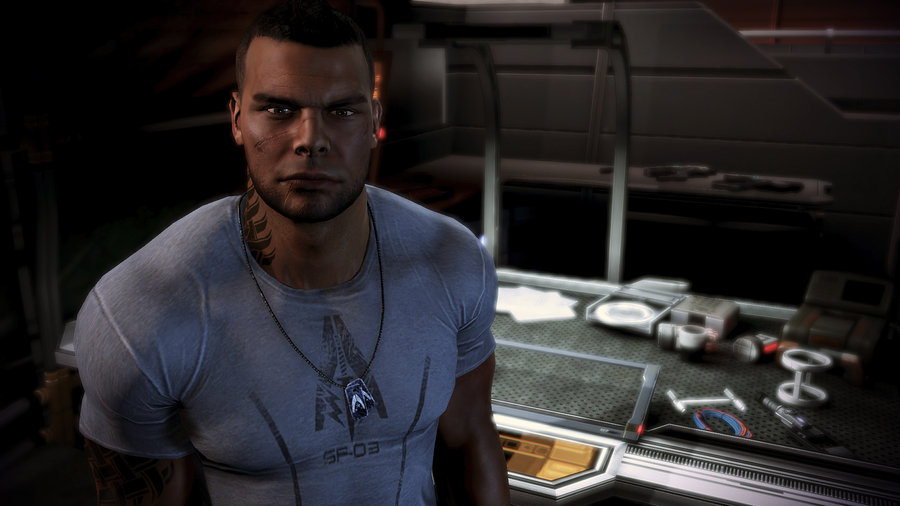
15. James Vega
When picking a member of your crew to romance, I think most of us share a general rule: humans are boring and we mainly want to bang weird aliens. Vega isn’t really an exception to the rule: he’s just a normal human dude, nothing to really get excited about. I’ve grown a bit foggy on the details of his story, but the more I talked to him, the more I wound up liking him, especially watching him awkwardly hit on me, his commanding officer. But, yeah. Ultimately, he’s just a human dude and thus not much of a draw. —Chris Livingston
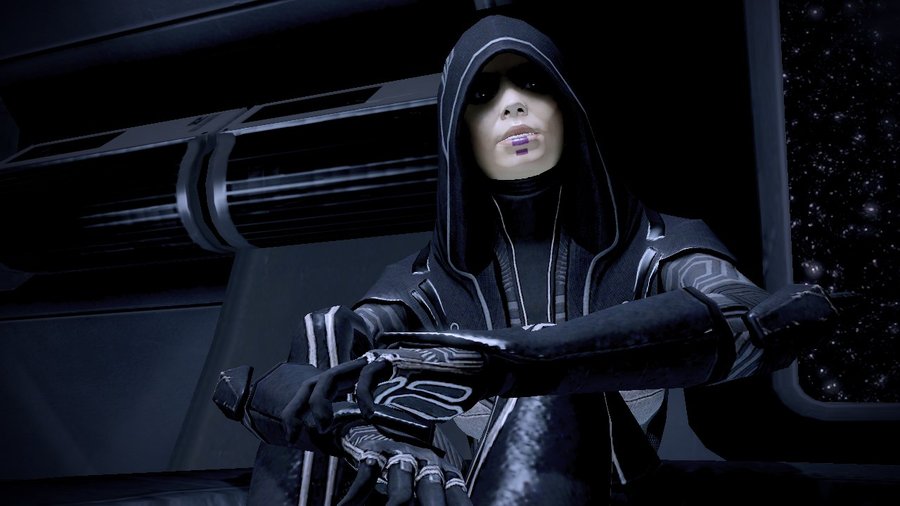
14. Kasumi Goto
Kasumi's Stolen Memory is probably my favourite DLC across the Mass Effect trilogy—it lets Shepard play at being James Bond by infiltrating a party at a mansion, and Kasumi's introduction as a slick, invisible thief (as well as something of a loner) makes her seem very different to the rest of the Normandy's crew.
Her back story with Keiji, her former partner in crime, is explored in a powerful, heartfelt way in her Stealing Memory loyalty mission. It becomes clear to Shepard how badly she's been wounded by his death, and you get to help her exact revenge on Donovan Hock, his killer. You're rewarded with a total gut punch of an ending that perfectly completes her arc.
In battle, Kasumi's Shadow Strike ability means she's one of the game's more visually interesting party members, too, vanishing and then popping up behind an enemy to damage them. I'm aware you can find Kasumi in Mass Effect 3 and its Citadel DLC, although sadly I didn't for some reason, even though I kept her alive in Mass Effect 2.
She's not many people's favourite character, clearly, but I'm just relieved she beat Kaidan and James Vega in this list. —Samuel Roberts
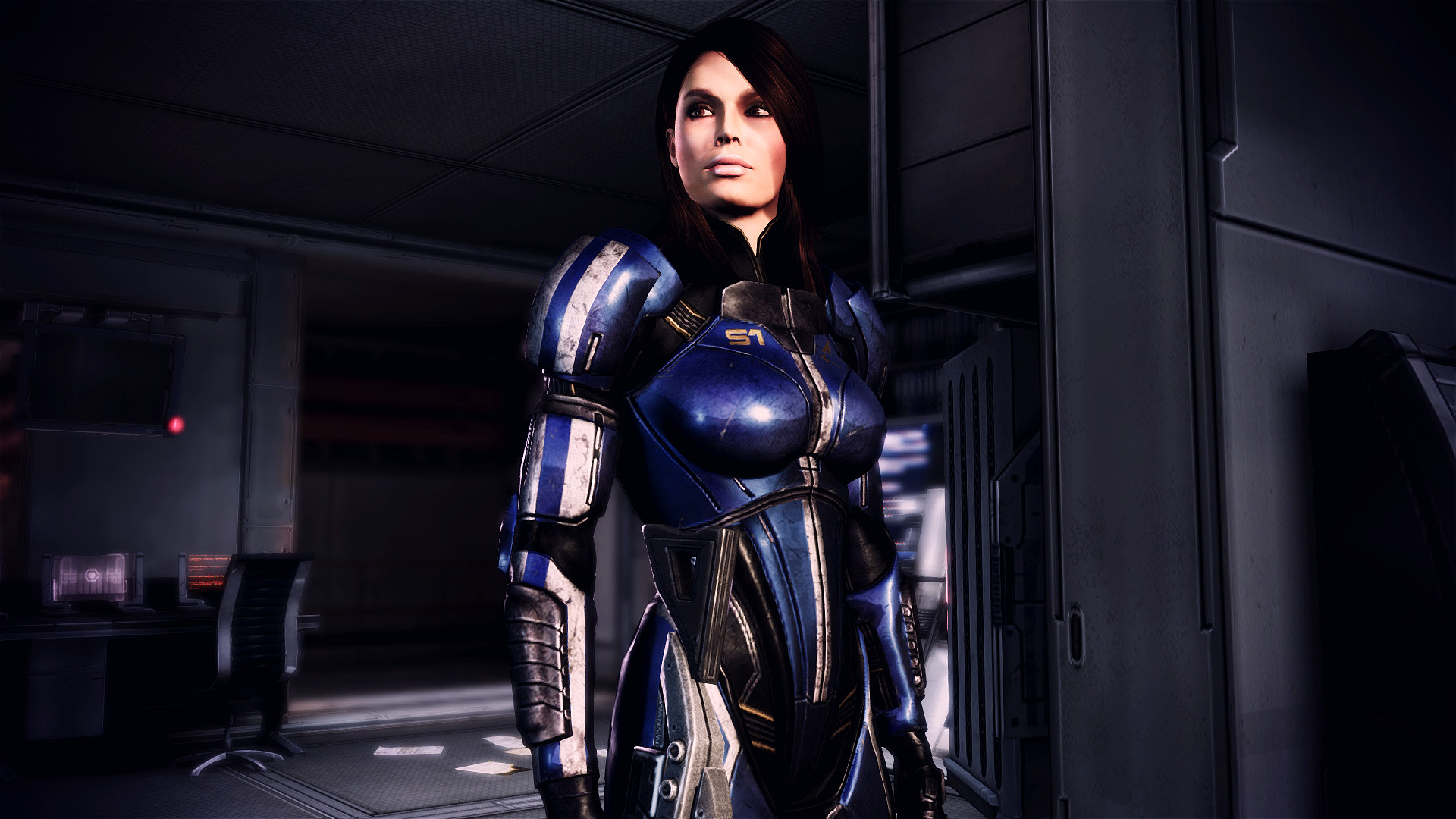
13. Ashley Williams
Look, I'm very sorry everybody, but 13th place is a travesty. I voted Ashley for 3rd place, behind Garrus and Mordin. This isn't the most disappointed I've been by democracy in 2016, but it's in the top five. Earlier in the year I wrote a long defense of Ash Williams for Official Xbox Magazine, which appeared on our sister site GamesRadar+ in November. But I'll give you the short version: Ash is one of the most substantially well-rounded characters in the series and one of the few that doesn't need Shepard to step in and fix her life.
She's among the few characters to seriously question Shepard's decisions, particularly when it comes to Cerberus, and she's willing to challenge you—at gunpoint, if necessary—when she feels that you're in the wrong. She's more than a sidekick and you get the impression that she could have been the main character had she not been wrenched away from the Prothean beacon at the start of the first game. She deserves better than 13th place and the 'space racist' meme. If you left her on Virmire, we cannot be friends. —Chris Thursten
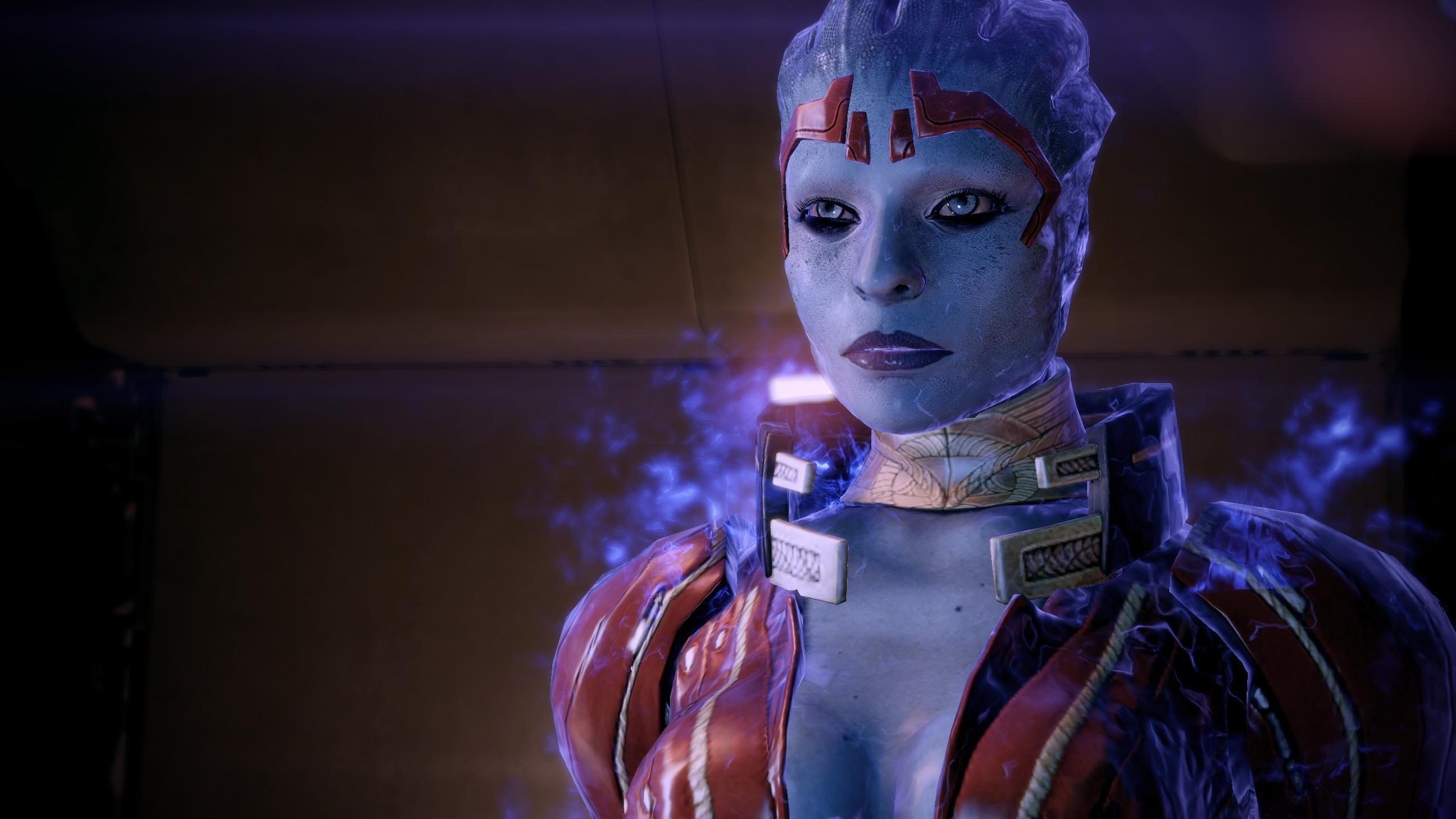
12. Samara
She's Judge Dredd with a serial killer daughter. However you play Samara across ME2 and ME3, Shakespearean death follows, making her one of Mass Effect's most tragic characters. On her loyalty mission, you have to make the decision between Samara dying or killing Morinth, her deadly fugitive offspring. Apart from ME2's actual suicide mission, she's one of three companions (Tali and Legion being the others) who can commit suicide in the game—in Samara's case, out of failure to fulfill her oath and execute her only living daughter, who's forbidden from leaving a monastery. Phew.
Samara's rigid, implacable adherence to the Justicar Code means that she's the only character in the series with zero moral grey area. It's a powerful premise in a game that's all about tough decisions, where you have to weigh the benefits of a brutal-but-effective party member against the occasional summary execution their capital-L Lawful alignment might inspire them to perform. Having an extremist around makes Mass Effect more interesting. —Evan Lahti
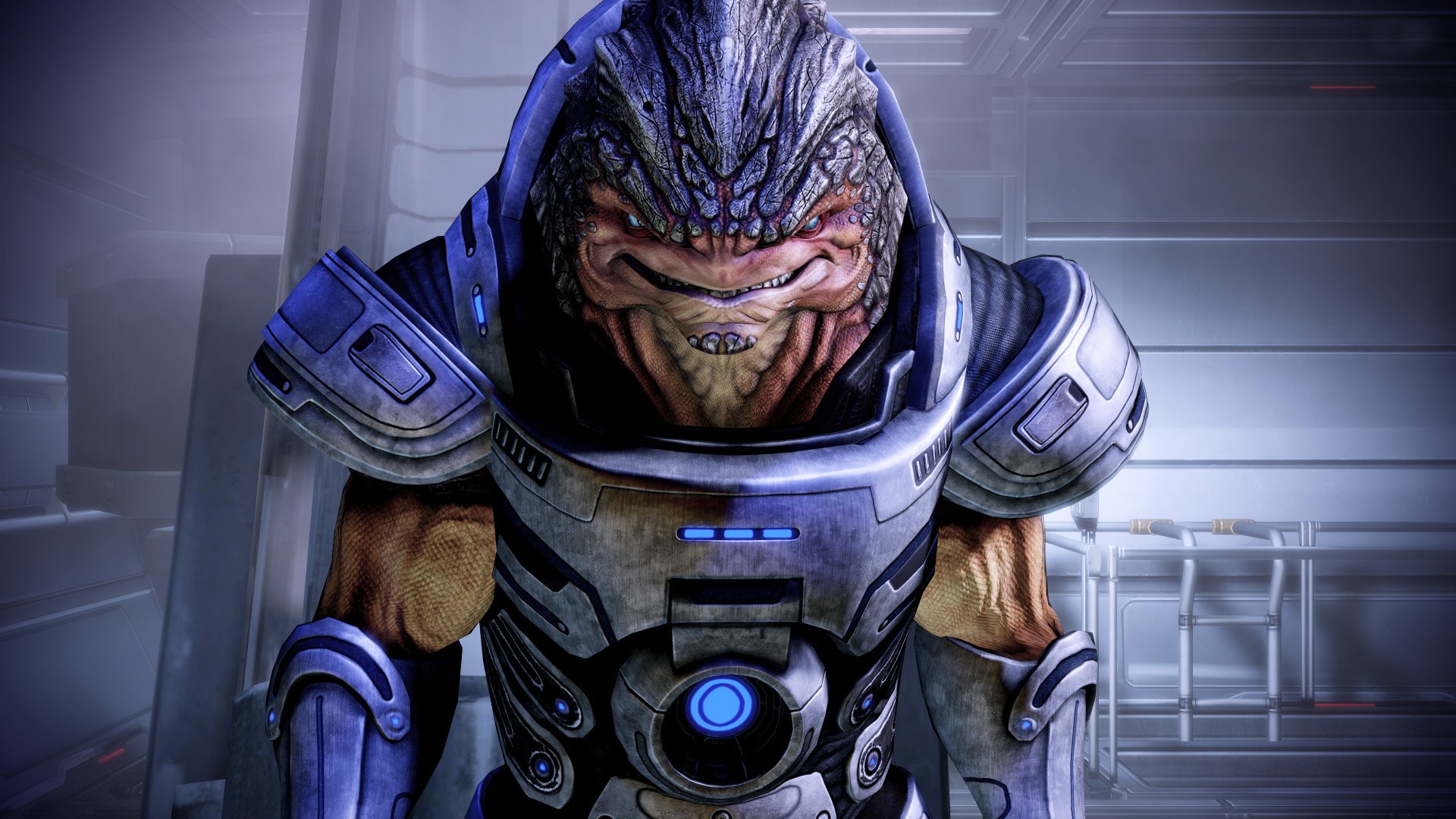
11. Grunt
Grunt has a lot going for him. For one thing, his name's Grunt. For another, he's voiced by Steve Blum, whose growls have been in approximately one billion games and anime series, but most famously as Cowboy Bebop's Spike Spiegel, a character dear to my heart. His craggy headscales look awesome. His suit kind of makes him look like Iron Man, if Iron Man skipped leg day for 40 years and bench-pressed an elephant every day.
He doesn't have much to him as a character beyond punching things and talking about fighting, but that can be a refreshing change from the philosophizing and soul-searching of the rest of the crew. —Wes Fenlon
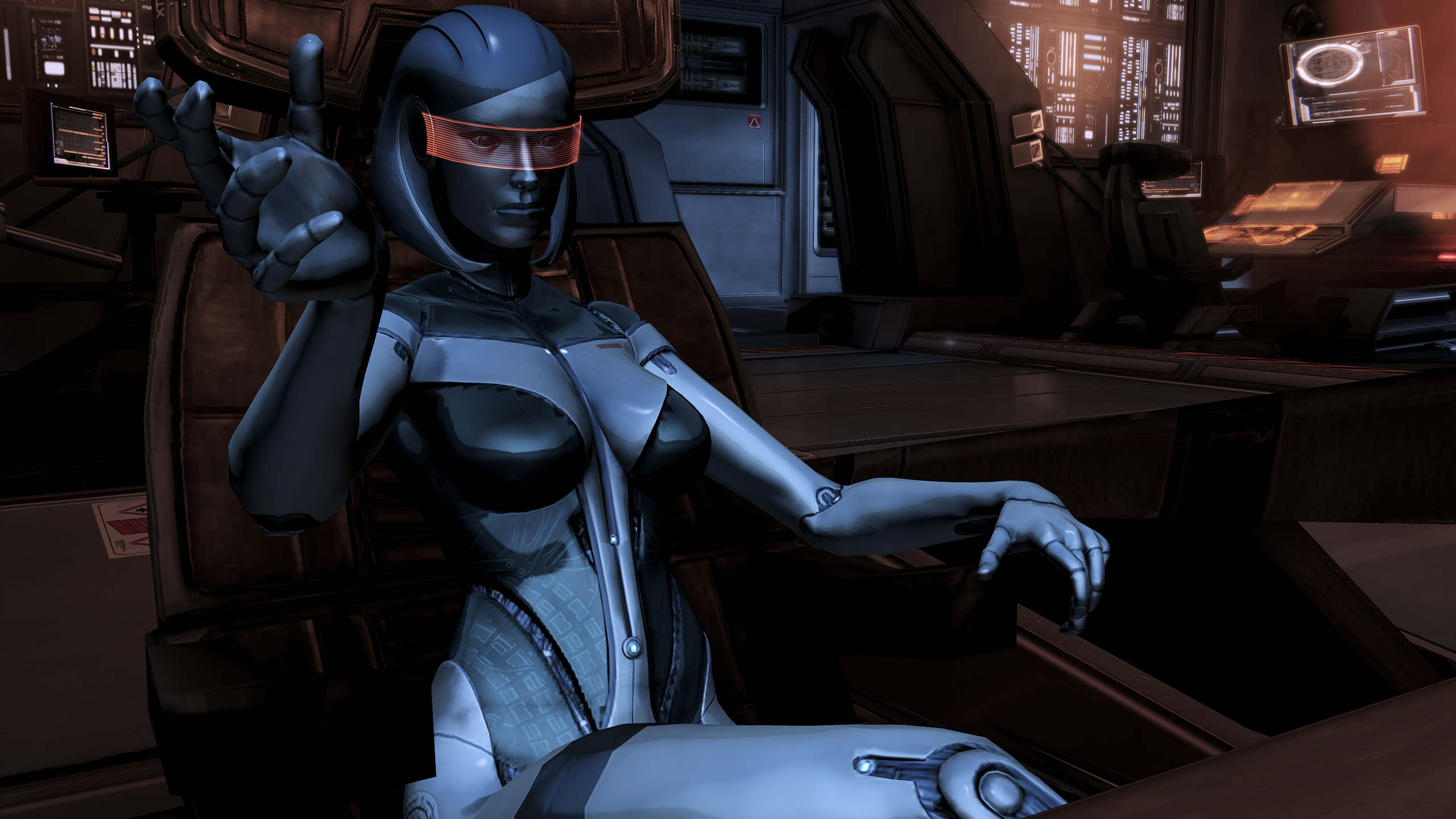
10. EDI
Honestly I'm still grossed out that Bioware chose to give the Normandy's AI a sexy robot body, and then wrote in a plot thread about Joker wanting to have sex with her. We all know that beneath the space opera Mass Effect is really about sexing up the galaxy's sexiest aliens, but you didn't have to be so on the nose about it, Bioware. EDI might have had some fine dialogue and ruminations on what it means to be human, but let's be honest: Legion covers that territory just fine, making EDI's humanoid form feel mostly gratuitous.
Also, I'm almost positive EDI was on Earth during my Mass Effect 3 finale, and somehow popped out of the Normandy with Joker at the end, blissfully alive. Talk about ruining my immersion. —Wes Fenlon
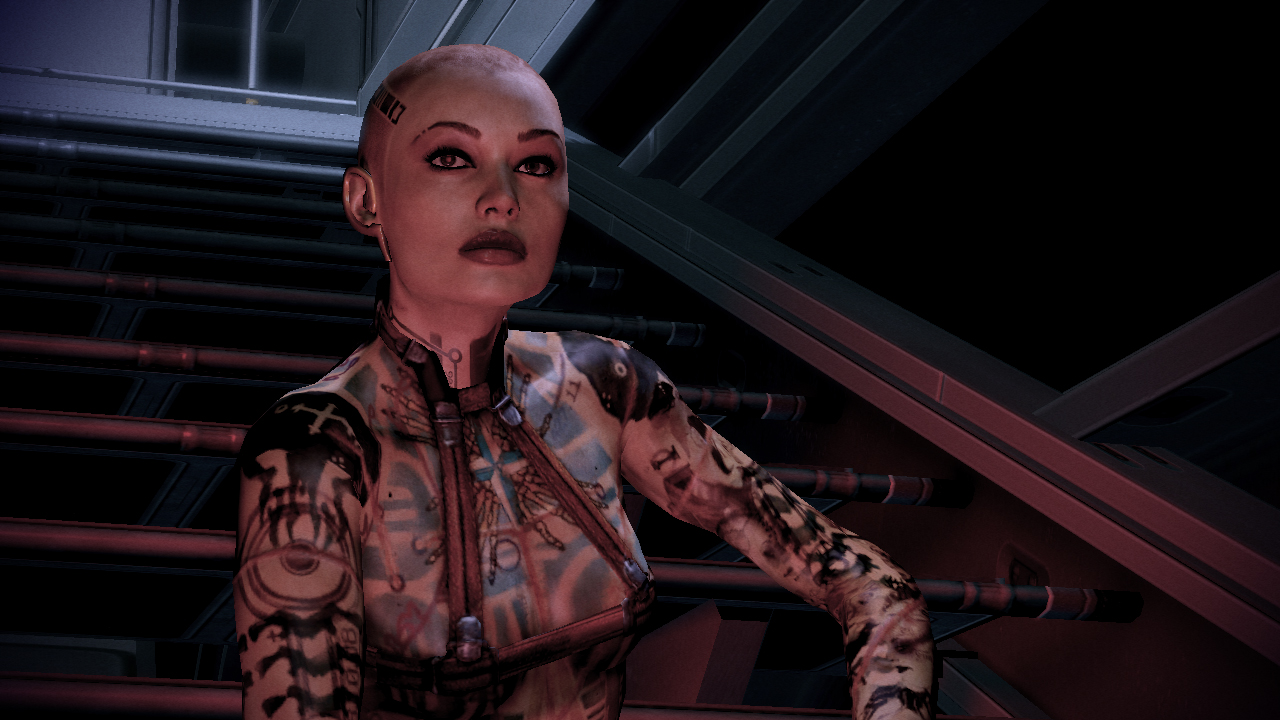
9. Jack
My Shepard was damaged goods. He had a traumatic childhood, exposed to war and poverty from day one—it’s no surprise he was a huge Korn fan in my headcanon. So when Jack came into the picture, of course I saw a lot of my imaginary space person in her. She also had a terrible childhood, orphaned at an early age and subjected to torturous experimentation under Cerberus. Jack is a character molded by forces entirely out of her control, rendered a literal psychopath by the powers that be, with little recourse beyond using her potent biotic powers to kill the jerks. They deserve it.
She gets criticized for filling out the edgy archetype, a would-be villain with a deeply vulnerable side, and it’s true. But who’s to say there’s no substance to such an archetype? Edginess is an adolescent rejection of the status quo, and having grown up knowing only pain and isolation, Jack has earned the right to be as edgy and emotional as she likes. If she survives Mass Effect 2, she goes on to channel her trauma into activism, training young biotics as the Grissom Academy. She finds a new sense of purpose, and because my Shepherd had yet to sort out his own trauma, helping Jack move past hers was cathartic for him. Subject Zero in the lore, but Subject One in our hearts. —James Davenport
----
Yeah, sorry, but still nope. Jack would have been bad in a mid-'90s THQ game. —Tim Clark
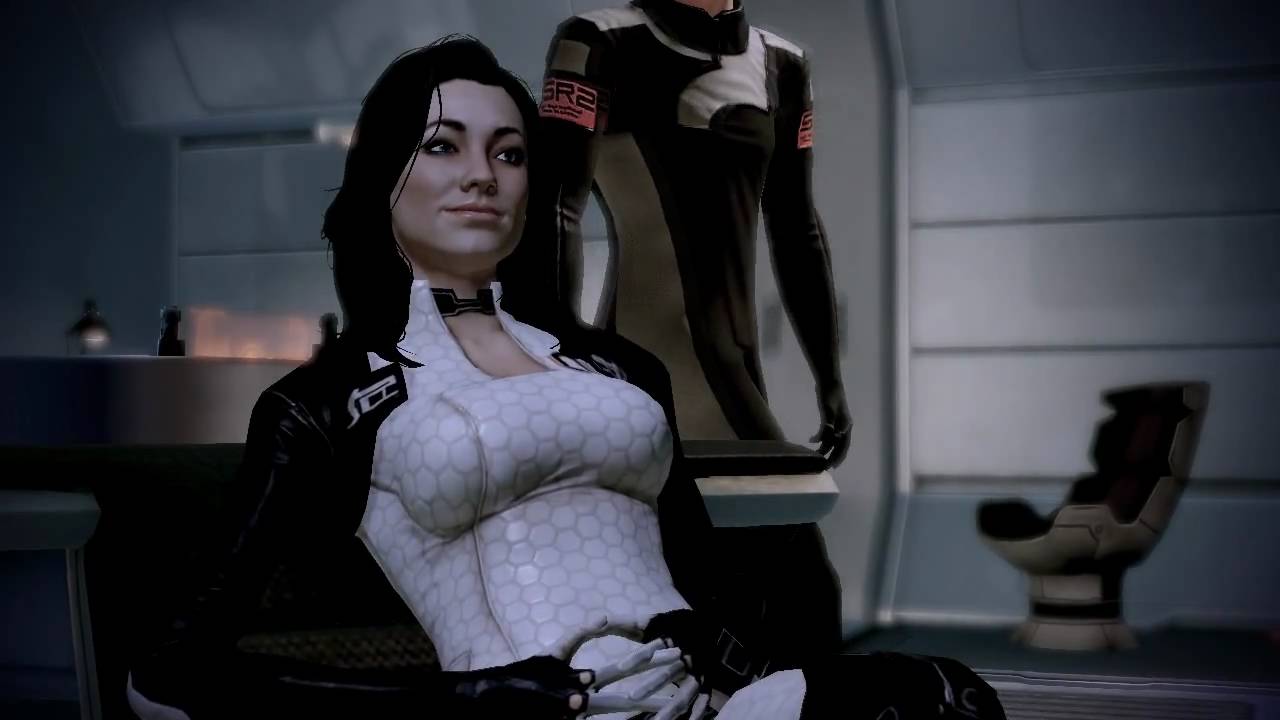
8. Miranda Lawson
Miranda was my Shepard's romantic partner in Mass Effects 2 and 3, which I guess is a fairly safe choice in a series where you have the option to romance various aliens. There's a lot going on with that character: her initial closeness to the Illusive Man and Cerberus suggests she's not to be trusted, and in the opening hours of the second game, she doubts Shepard and comes into conflict with him. Slowly, you win her round, and at a key point, you're forced to choose sides between her and Jack during an argument on the Normandy. That then relationship develops into a convincing romance where you realise you're on the same page about the mission at hand.
Miranda's experience of genetic enhancements links back to her complicated relationship with her father, which is more closely and brutally examined in Mass Effect 3. This personal crisis makes her one of the series' more complex characters, in my opinion, offering some clear motivations for why she is the way she is.
I suppose I should also fess up to the fact I was watching a lot of the TV series Chuck in 2010, and the option to romance a BioWare character played by that show's cast member, Yvonne Strahovski, seemed like the correct thing to do. I was 21. —Samuel Roberts
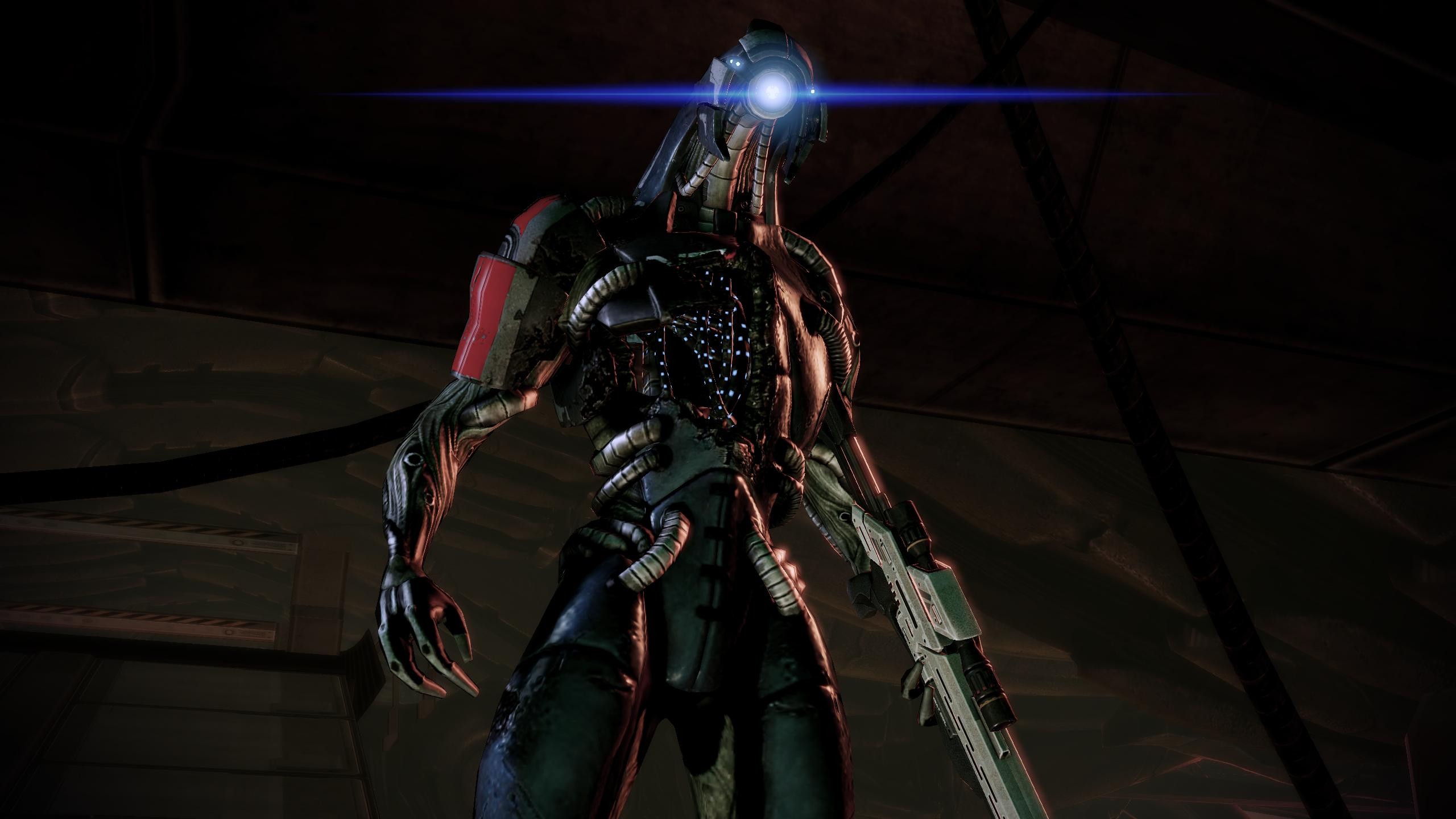
7. Legion
Despite a bunch of humdrum sci-fi cliches—robots having an uprising, a collective hive-mind, and questioning whether or not they have a soul (barf)—Legion manages to remain an interesting character. The fact that he crudely patched himself up with a piece of dead Shepard-Commander’s armor is not just cool, but the first sign that Legion is more than just a simple geth automation capable of independent thought and perhaps even sentimentality.
While Legion doesn’t really have a sense of humor, per-se, he is often funny in that way robots have of flatly presenting data, such as the likelihood of someone being punched in the face by the volatile Jack (whom Legion also suggests be deactivated and shipped as cargo). I found Legion much more appealing as a companion than a particular Quarian I won’t name, and I was sadder to see him go than just about anyone else in the series. Cool robot. —Chris Livingston
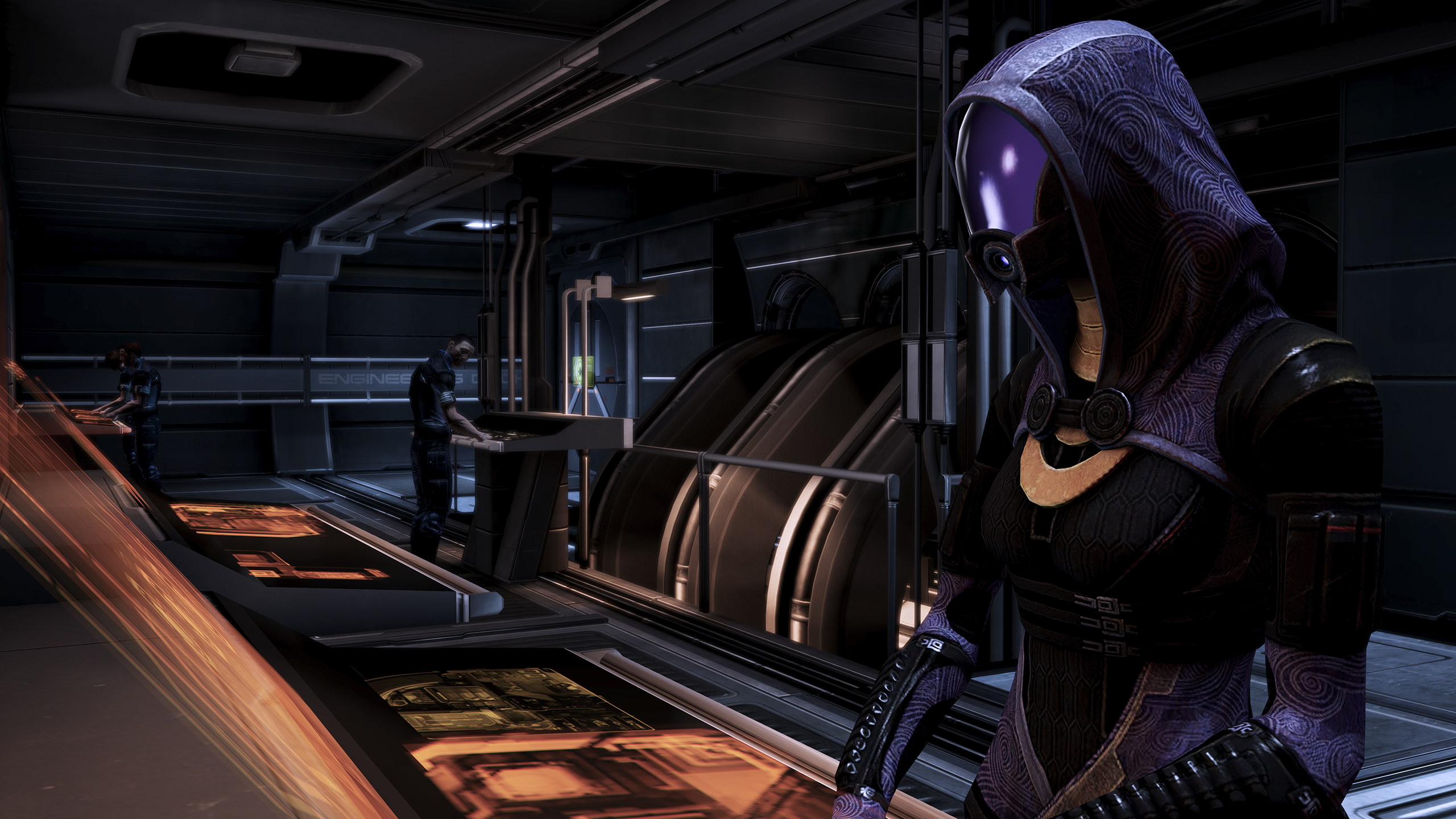
6. Tali-Zorah nar Rayya
Mass Effect isn't the first bit of sci-fi to blend machinery and religion, but the entire concept of a migrant fleet as home and a pilgrimage as rite of passage is still a cool setup, and Tali's stories were a great bit of universe-building in that first adventure. Tali may not have been quite so memorable without the mystery of her face, preserved across all three games (I'm pretending that bad Photoshop job from Mass Effect 3 never existed). Even so, she may be the only companion with a story arc that spans across the entire trilogy.
Early in Mass Effect Tali provides insight into the quarian relationship with the Geth, which plays a bigger picture in Mass Effect 2. Her personal conflict with Legion is a genuinely tense balancing act, and Tali's loyalty mission deepens your understanding of the geth/quarian conflict and the quarian customs.
The conclusion of Tali's story in Mass Effect 3 was the most heart wrenching moment of the series for me. Here was a character I'd known for years. I liked her voice and curiosity, defended the galaxy with her, and cleared her name. But thanks to Mass Effect's binary good/bad morality system, I didn't have quite the paragon or renegade points to resolve the final showdown between Tali and Legion peacefully. One of them had to die, and it would mean the eradication of a species. There's no perfectly happy ending here. And there really shouldn't be.
Mass Effect too often gives you that satisfying videogame outcome of 'solving' a storyline to get the good ending, but that's not the case with Tali. Her final step into adulthood ends with a heartbreak that Mass Effect was building to for five years. I still feel the sting of it. —Wesley Fenlon
The Top 5
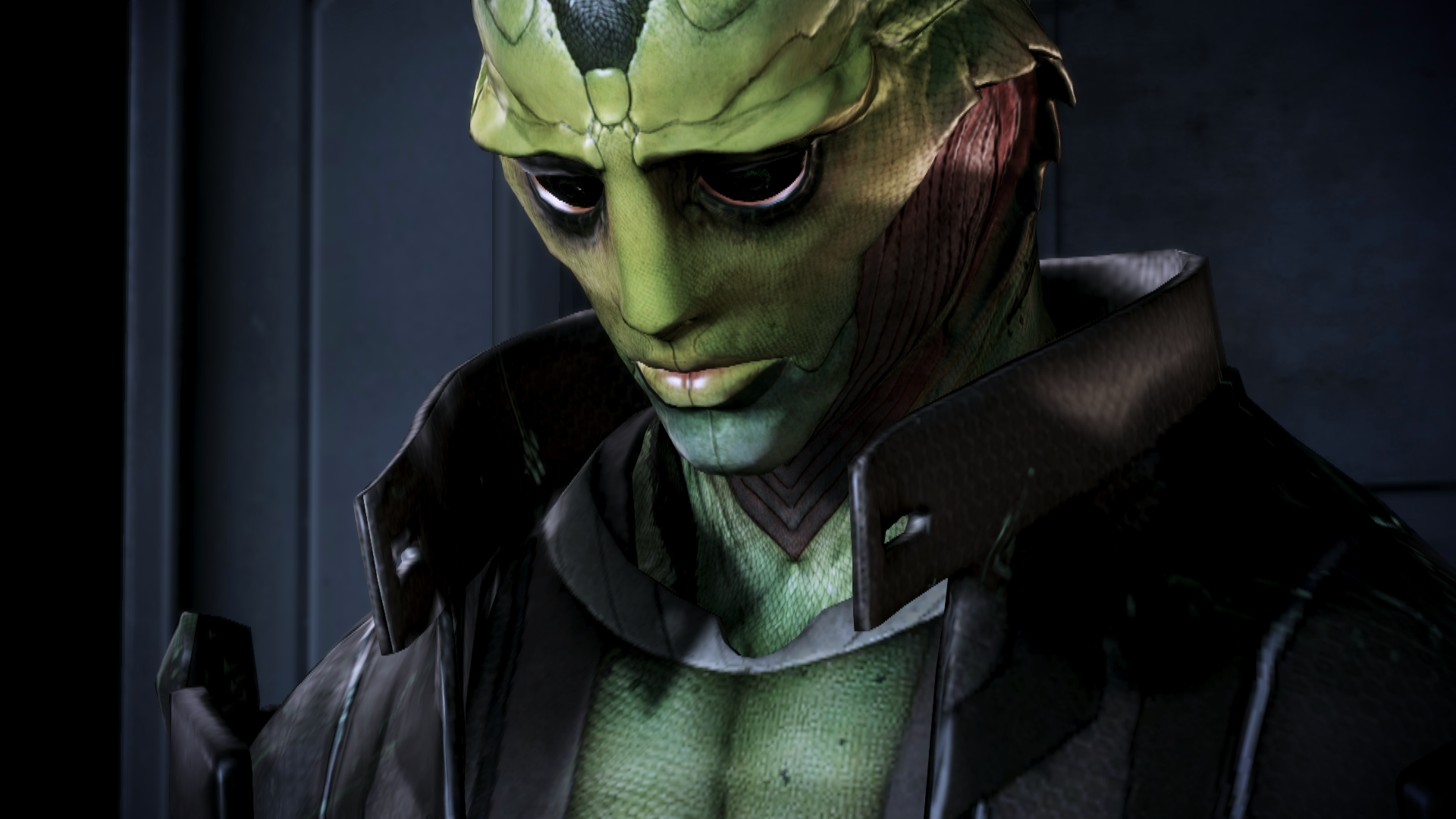
5. Thane Krios
Thane is a coldblooded killer with a conscience that struggles against his own profession. Doomed with a disease that’s slowly killing him, he signs on with Shepard’s suicide mission against the Collectors in ME2 because he has nothing left to lose. That internal conflict is what makes Thane such a compelling sidekick—he’s basically the personification of Shepard’s own Paragon and Renegade choices, and is the literal representation of their team marching slowly toward almost certain death. Plus, who can resist that gravelly voice? —Tom Marks
Let's be honest. He's up here because he's a hot killer insect boy. My Shepard banged him, FYI. —Phil Savage
Nice. —Wesley Fenlon
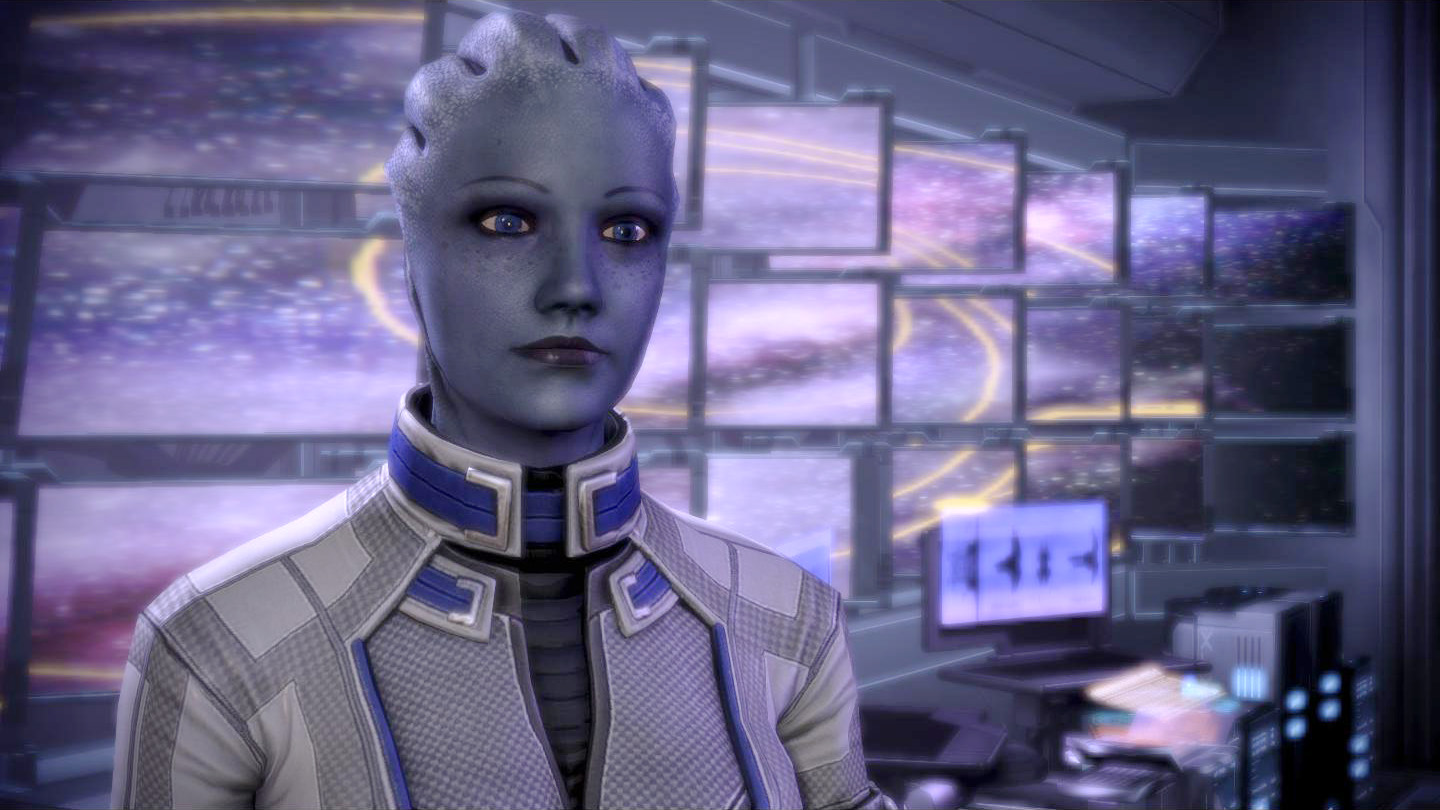
4. Liara T'Soni
Oh, Liara. My sweet blue 106 year-old summer child. The easy mistake is to think that the asari scientist in only on the Normandy to serve as some sort of proxy conscience for the player. Yes, Liara does provide counterbalancing compassion to Shepard’s necessary cynicism, but there’s more to her than simply just being “the nice one”.
In practical terms, her academic insight into the Protheans makes her, literally, the smart pick for just about any mission. She’s certainly more likely to serve up nuggets of relevant info than almost anyone on this list. And as an all-in biotic character, Liara also has one of the handiest toolkits when it comes to combat. But the thing I like most is that she gives the game heart, without it having to be constantly bleeding.
Liara is conflicted. By her mummy issues, by her lack of romantic experience, and by her inability to lie—but those doubts are offset by the sense of wonder and hope she brings to proceedings. As such she makes a fascinating alternate lens through which to view the Mass Effect universe. Unlike much of the cast, Liara is rarely sure about her answers (check out her doubts about the Krogan cure in the third game, for instance), which makes for a consistently interesting travel companion.
She’s also got a killer story arc. If your Shepherd falls for Liara, then she gives the best grief after your “death” in Mass Effect 2, which also perfectly sets up the hardening of her character, leading to her eventually becoming the Shadow Broker at the end of what is of course the best DLC story add-on. Liara, it was always you. —Tim Clark
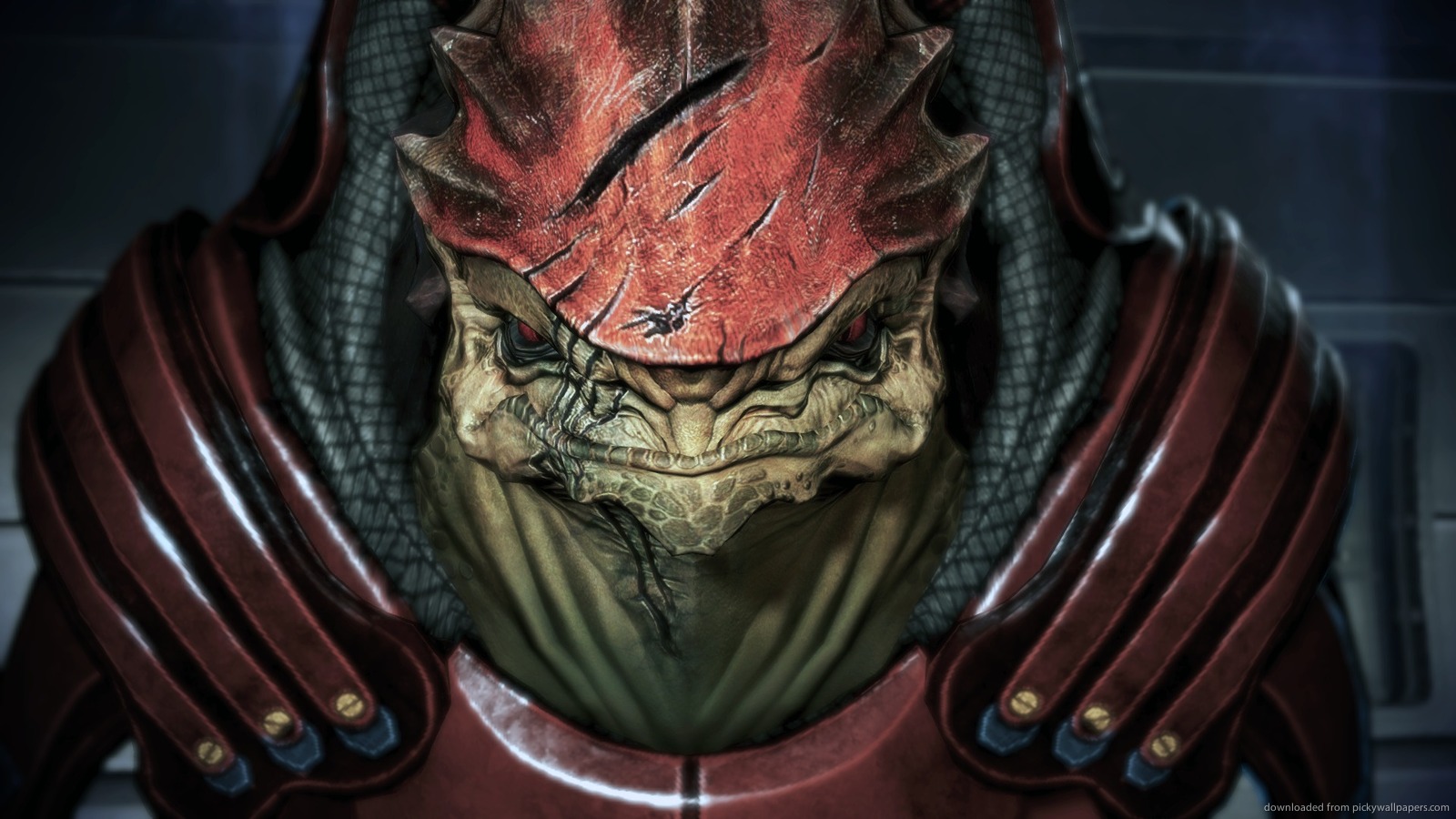
3. Urdnot Wrex
I played the Mass Effect series with a single rule: no going back to an earlier save to revise decisions I made. What happened, happened, no matter the consequences. I broke this rule only once, in the first game, when an argument led to—shockingly, and I thought, unfairly—Wrex being shot dead in a cutscene. I couldn’t live with that. No way. Wrex was way too cool to die. That’s the only time I undid one of Mass Effect’s events.
Wrex is cool (and my personal pick for best companion) because not only is he a tough-as-nails, battle-hardened veteran, he’s also a deep thinker, disagreeing with most other Krogans (including his father) about going to war after the genophage. Plus, he’s big and bulky and has a really deep voice and cool scars and he’s just the best.
There was no bigger disappointment than discovering Wrex couldn’t be my companion in Mass Effect 2, having been replaced with the lesser (but still decent) Krogan, Grunt. But that’s what a true badass does: accepts new responsibilities in place of galavanting around the galaxy. —Chris Livingston
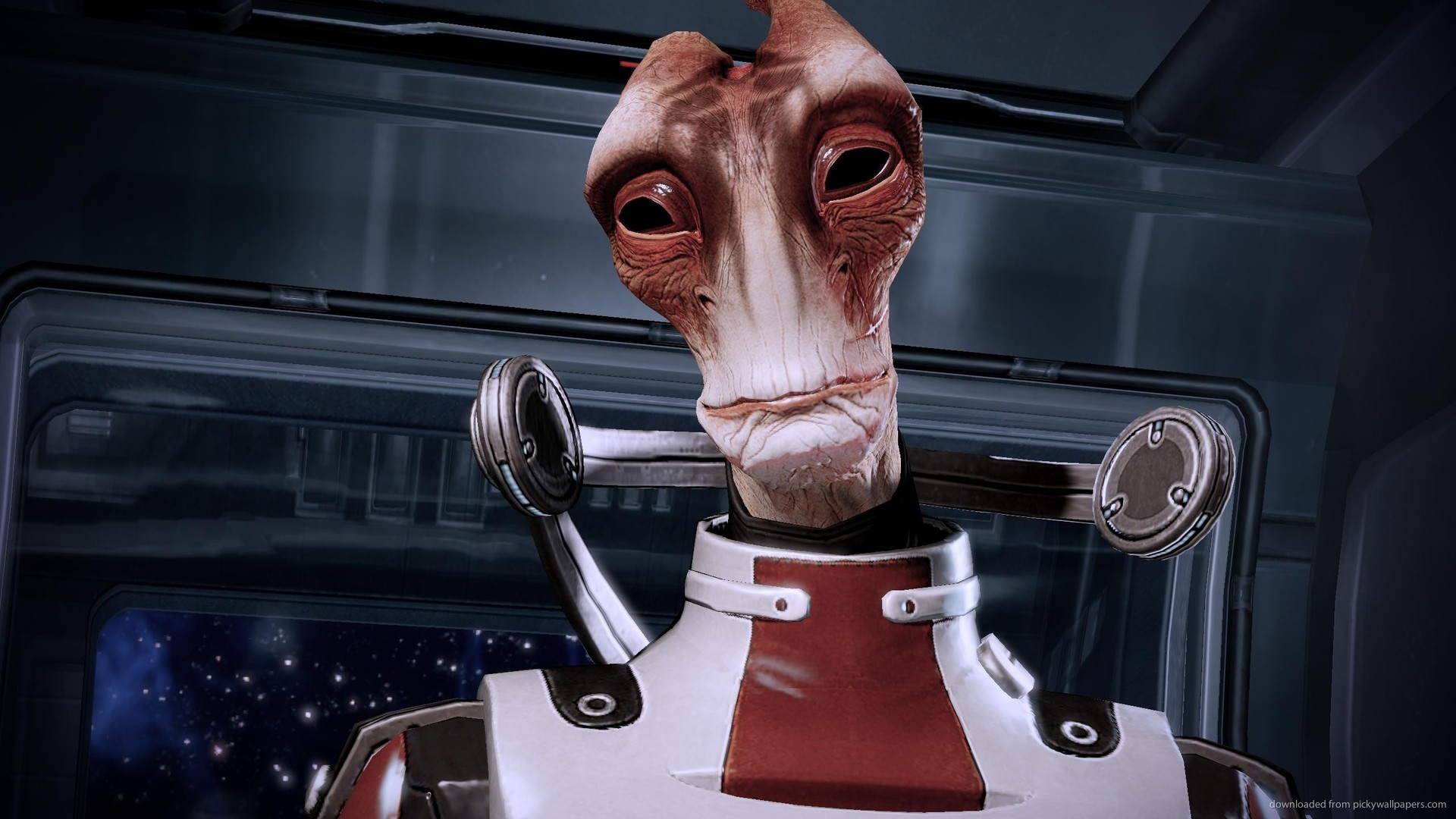
2. Mordin Solus
I love Mordin because he shows that you don't need stubble, a gravelly voice and a thousand yard stare to be an anti-hero. Mordin's quick-fire speech at first feels like a manufactured quirk, something to help you pick him apart from your small army of companions. However, it soon becomes clear that his upbeat demeanour hides a cold, calculating mind that has spent years dealing with the most difficult decisions in the solar system—decisions that Shepard is drawn into over the course of the second and third games. That machine-gun delivery is a product of a mind overflowing with thoughts, at once demonstrating his scientific brilliance and his anxiety. It's a symptom of the battle between logic and compassion that lies at the heart of his character.
He's such a chipper fellow that it comes as quite a shock to learn that he's the gateway to Mass Effect's genocide subplot. As you bond with him, he opens, and you see him dissect the terrible problems he's faced with an analytical mindset. He has done the moral mathematics—he will kill a million to save ten million—but his genophage is a slow, painful deathblow for the Krogan. As he travels with Shepard, he is forced to watch that species sputter out. None of your companions have faced a dilemma on this scale, but somehow this genius Salarian is able to bear the burden, and still find the optimism to sing a fine bit of Gilbert and Sullivan. —Tom Senior
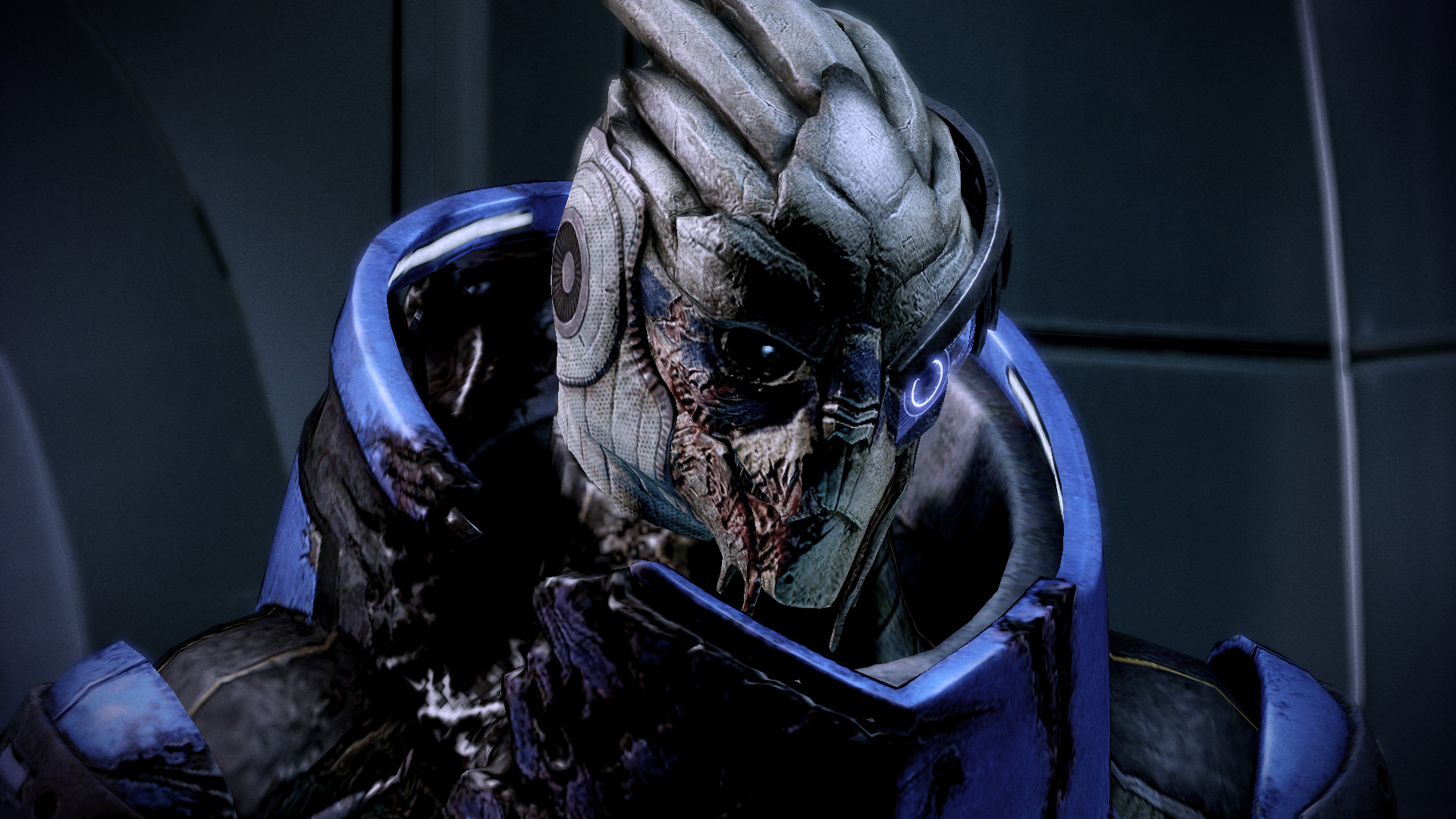
1. Garrus Vakarian
Garrus has an advantage when it comes to a Mass Effect popularity contest: he's awesome. Also, he has a substantial role in all three games—the only other character you can say that about is Tali. That's not exactly a fair fight. Tali's great, of course, but she struggles to rise above the quirky-little-sister companion archetype that CRPGs would do well to be rid off. Garrus is something else. He's your best pal, first and foremost, somebody whose objectives and attitude align with your own and who will always, always have your back. The journey from that first meeting between a frustrated CSEC officer and a novice Spectre during the Saren investigation to that last charge against the Reapers as a pair of war heroes is one of the best friendship stories in gaming. And if you decided to get all up in his insect-bird-man business, it's a lovely romance as well.
Yet that's not all Garrus represents. The idea that Garrus is both dependent on Shepard and overshadowed by Shepard is one of the most nuanced bits of character writing in the series. Heading out alone after Shepard's 'death', Garrus makes a mess of hero life: when Shepard finds him and relieves him of the Arkangel moniker, it's a relief. He wasn't cut out to be Batman: he was born to be Robin. But that's a sad thing to recognise, and—laudably—it's not something that Shepard is allowed to fully resolve. There's no paragon-interrupting your way out of it. It's simply a thorn in your friendship, a blemish that makes their relationship all the more believable.
The kindest thing you can do, when it comes down to it, is let Garrus win that one last shooting contest on the Citadel. Give the guy his moment. He deserves it. —Chris Thursten
Mass Effect: What to read next

Wes has been covering games and hardware for more than 10 years, first at tech sites like The Wirecutter and Tested before joining the PC Gamer team in 2014. Wes plays a little bit of everything, but he'll always jump at the chance to cover emulation and Japanese games.
When he's not obsessively optimizing and re-optimizing a tangle of conveyor belts in Satisfactory (it's really becoming a problem), he's probably playing a 20-year-old Final Fantasy or some opaque ASCII roguelike. With a focus on writing and editing features, he seeks out personal stories and in-depth histories from the corners of PC gaming and its niche communities. 50% pizza by volume (deep dish, to be specific).

